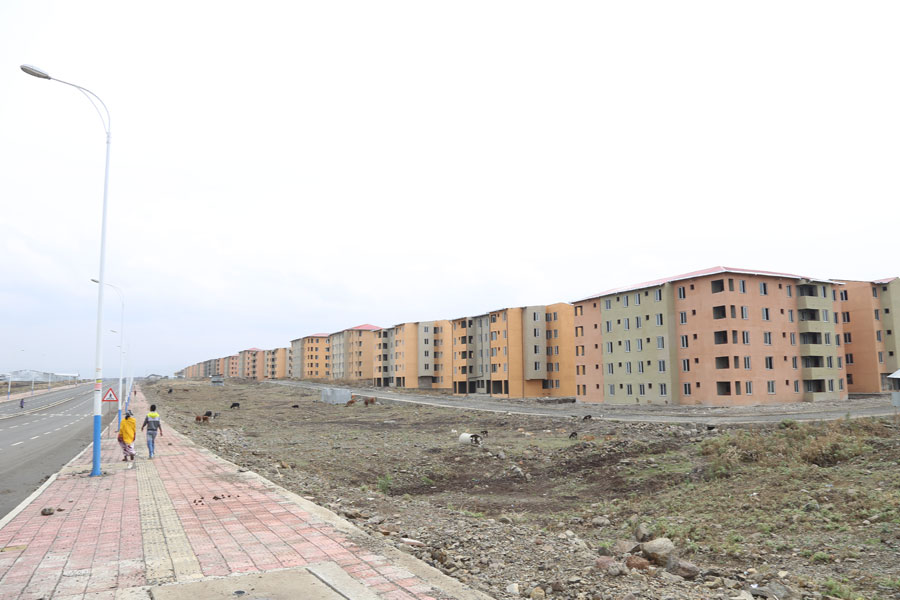
Fortune News | Nov 06,2021
Apr 6 , 2024
By Yemanebrhan Kiros
Behind Ethiopia's push for energy efficiency lies a critical quest to optimise energy use across all sectors, from household appliances to industrial operations. By establishing energy baselines and benchmarks, policymakers aspire to improve energy consumption patterns systematically. This approach reimagines energy management to ensure energy savings and environmental conservation, writes Yemanebrhan Kiros (yomemech@gmail.com), manager at Yomener Energy Auditing & Engineering Plc.
Policymakers Rethink Energy, Aiming for Sustainability Amid Surging Demand
Ethiopia is on the verge of a major shift in its approach to energy management, signalling a much-needed adaptation to the evolving global and local energy environment.
Its leaders' decision to revise the energy policy, a long-overdue move, is now seen as a critical step towards ensuring energy security and embracing sustainability. The strategic shift comes at a time when Ethiopia, like many countries around the globe, faces the daunting task of reconciling its growing energy demands with the imperative for environmental conservation and economic viability.
The evolution of domestic energy consumption patterns provides a compelling backdrop for the policy overhaul. In recent years, urban households have increasingly transitioned from kerosene to electricity for daily cooking needs, driven by the soaring costs of fossil fuels. While environmentally beneficial, the transition has placed an unprecedented strain on the country's power infrastructure, revealing its unpreparedness for such a rapid increase in demand.
Nonetheless, rural and lower-income urban communities continue to rely on firewood, exacerbating deforestation issues and further stressing the energy system.
The federal government has introduced measures targeting energy consumption control. These include regulations on the energy efficiency of cooking appliances and a bold move to ban the import of fossil-fuel-powered vehicles in favour of electric ones. Such initiatives show the government’s commitment to reducing the country’s carbon footprint and transitioning to cleaner energy sources.
However, these measures also anticipate a notable surge in electricity demand, demanding robust upgrades to the existing power distribution networks, particularly in urban areas like Addis Abeba, to prevent frequent power outages.
The vision of energy efficiency should emerge as a central theme in the revised energy policy. The authorities should recognise that enhancing energy efficiency is not merely about responding to technical losses or curbing human-induced wastage; it is more about fundamentally rethinking how energy is consumed and managed across the board. From household appliances to large industrial boilers, the inefficiencies in energy use represent financial drains and a missed opportunity for conservation.
Addressing these inefficiencies requires a manifold approach. Establishing energy baselines and benchmarks should be a critical first step, allowing for a systematic assessment of energy consumption patterns across different sectors. The process should involve federal agencies as much as it does with industrial entities. Broad-based awareness and capacity building among facility managers and end-users would be no less critical. By understanding and monitoring their baseline energy consumption, policymakers can identify inefficiencies and implement corrective measures more effectively.
The policy should highlight the importance of energy baselining in facilitating future infrastructure design and guiding new investments in power generation. As policymakers encourage private sector participation in the energy sector, clarity on current and projected energy needs will be crucial for ensuring that new ventures contribute positively to the country’s energy landscape.
The policy should also acknowledge the critical role of energy efficiency in reinforcing other key pillars of the energy strategy, such as access, sustainability, and security. By prioritising efficiency, the country can better manage unexpected surges in demand, leveraging savings in one area to address shortfalls in another. There should also be a shift in perspective from cost control to a more holistic view of energy management, where every unit of saved energy enhances the system's overall resilience and sustainability.
However, achieving this level of efficiency is not without its constraints.
The policy should point to the need for comprehensive assessments of energy use, particularly in sectors that may have been overlooked, such as small-scale industries. While individually, these businesses may consume low energy, collectively, they represent a considerable portion of the national energy footprint. The policy thus should call for these industries to adhere to international standards like ISO 50001, which emphasises continuous improvement in energy performance through systematic processes and documentation.
In addition to industrial efficiency, the revised energy policy should strongly emphasise developing and enforcing energy codes for residential and commercial buildings. These codes, must also be tailored to the local context and appliance usage patterns, ensure that new construction projects, whether public-led or private, incorporate energy-saving designs from the outset. Such proactive measures can lead to substantial savings in lighting, heating, and air conditioning costs, further contributing to the energy efficiency goals.
The revised energy policy must be a blueprint for transforming the energy sector. It should also recognise the intertwined challenges of meeting growing energy demands, ensuring environmental sustainability, and fostering economic development. By setting a clear path towards energy efficiency, the policy yet to be approved, must aspire to address the pressing issues of supply and demand. It can lay the groundwork for a more resilient and sustainable energy future.
However, the success of this endeavour will depend on the collective efforts of all stakeholders. Policymakers and industry leaders must share the commitment to energy efficiency and sustainability with individual consumers to achieve their vision of an energy-secure and environmentally responsible future.
PUBLISHED ON
Apr 06,2024 [ VOL
25 , NO
1249]


Fortune News | Nov 06,2021

Fortune News | Jan 11,2020

Radar | Jun 22,2024

Radar | Mar 26,2022

Fortune News | Mar 09,2019

Editorial | Jun 01,2024

Fortune News | May 13,2023

Commentaries | Aug 03,2024

My Opinion | May 11,2024

Fortune News | Apr 22,2022

My Opinion | 131974 Views | Aug 14,2021

My Opinion | 128363 Views | Aug 21,2021

My Opinion | 126301 Views | Sep 10,2021

My Opinion | 123917 Views | Aug 07,2021

Dec 22 , 2024 . By TIZITA SHEWAFERAW
Charged with transforming colossal state-owned enterprises into modern and competitiv...

Aug 18 , 2024 . By AKSAH ITALO
Although predictable Yonas Zerihun's job in the ride-hailing service is not immune to...

Jul 28 , 2024 . By TIZITA SHEWAFERAW
Unhabitual, perhaps too many, Samuel Gebreyohannes, 38, used to occasionally enjoy a couple of beers at breakfast. However, he recently swit...

Jul 13 , 2024 . By AKSAH ITALO
Investors who rely on tractors, trucks, and field vehicles for commuting, transporting commodities, and f...

Jul 5 , 2025
Six years ago, Ethiopia was the darling of international liberal commentators. A year...

Jun 28 , 2025
Meseret Damtie, the assertive auditor general, has never been shy about naming names...

Jun 21 , 2025
A well-worn adage says, “Budget is not destiny, but it is direction.” Examining t...

Jun 14 , 2025
Yet again, the Horn of Africa is bracing for trouble. A region already frayed by wars...

Jul 6 , 2025 . By BEZAWIT HULUAGER
The federal legislature gave Prime Minister Abiy Ahmed (PhD) what he wanted: a 1.9 tr...

Jul 6 , 2025 . By YITBAREK GETACHEW
In a city rising skyward at breakneck speed, a reckoning has arrived. Authorities in...

Jul 6 , 2025 . By NAHOM AYELE
A landmark directive from the Ministry of Finance signals a paradigm shift in the cou...

Jul 6 , 2025 . By NAHOM AYELE
Awash Bank has announced plans to establish a dedicated investment banking subsidiary...